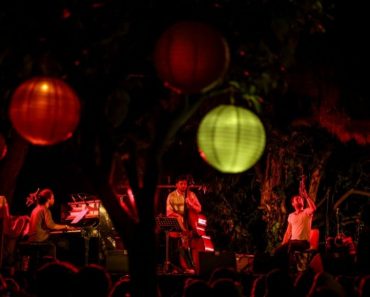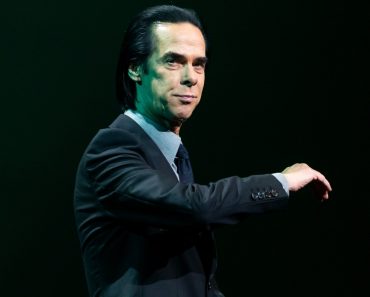Arrangements and vocals by Farya Faraji, based on traditional melodies from Thrace. Artwork by J.F Oliveras, do check out his excellent historical reconstructions. This composition is about emperor Basil II Porphyrogennetos, “the Purple-born”, nicknamed the Bulgar Slayer (Boulgaroktónos). This nickname was earned after his conflict and annhilitation of the First Bulgarian Empire, the principal European foe of the Eastern Romans during that era. A proficient statesman, the Empire flourished in many aspects during his reign, and his legacy is one of a national hero in Greece, whilst being despised among the Bulgarians.
Musically, I wanted this track to reflect both Bulgarian and Greek sensibilities, and the best place for that was Thracian music—a shared cultural style overlapping both Greek and Bulgarian music. This geographical style of music, defined among other things by the usage of the gaida bagpipe to provide dance tunes also fits the geographical area where many of the confrontations between the two empires occured, and also matches the regional origin of Basil’s dynasty, which originated from Thrace. The gaida bagpipe in this piece fulfills a dual Greek-Bulgarian role as it is used virtually identically on both sides of Thrace.
For the section where the Trisagion prayer in Old Church Slavonic is being sung to represent the Bulgarian Empire, I also performed throat singing as a nod to the Bulgar aspect of the empire, which was a steppe-based culture, possibly Turkic and originally Tengrist. The lyrics are in Greek and in Old Church Slavonic, the Slavic language spoken in the First Bulgarian Empire, and which is still used as a liturgical language.
Lyrics in Greek and Old Church Slavonic:
Πολλά τα έτη των βασιλέων,
Στο όνομα του βασιλιά,
Βασίλειος Πορφυρογέννητος,
Ό Βουλγαροκτόνος,
свѧтꙑи боже,
свѧтꙑи крѣпъкꙑи,
свѧтꙑи бесъмрьтьнꙑи,
помилоуи насъ,
Romanised lyrics:
Pollá ta éti ton vasiléon,
Sto ónoma tou vasiliá,
Vasíleios Porfyrogénitos,
O Boulgaroktónos,
Svjatyj Bozhe, Svjatyj Kryepkij, Svjatyj Byezsmyertnyj, Pomiluj nas
English translation:
Many years to the Kings!
In the name of the King,
Basil the Purpleborn,
The Bulgar Slayer.
Holy God, Holy Strong,
Holy Immortal,
Have mercy on us.
#epicbyzantinemusic #epicslavicmusic
source











NOTES ON THE PRONUNCIATION:
Part of the lyrics are in Church Slavonic but the only audio reference I could find used modern Russian or Ukrainian pronunciation, which is neither representative of the current Bulgarian pronunciation of Old Slavonic or its reconstructed historical sound.
Arrangement and vocals by Farya Faraji, based on traditional melodies from Thrace. Please note that this isn't reconstructed medieval music, only modern Thracian music. Artwork by J.F Oliveras—do check out his excellent historical reconstructions. This composition is about emperor Basil II Porphyrogennetos, “the Purple-born”, nicknamed the Bulgar Slayer (Boulgaroktónos). This nickname was earned after his conflict and annhilitation of the First Bulgarian Empire, the principal European foe of the Eastern Romans during that era. A proficient statesman, the Empire flourished in many aspects during his reign, and his legacy is one of a national hero in Greece, whilst being traditionally negative in Bulgaria.
Musically, I wanted this track to reflect both Bulgarian and Greek sensibilities, and the best place for that was Thracian music—a shared cultural style overlapping both Greek and Bulgarian music. This geographical style of music, defined among other things by the usage of the gaida bagpipe to provide dance tunes also fits the geographical area where many of the confrontations between the two empires occured, and also matches the regional origin of Basil’s dynasty, which originated from Thrace. The gaida bagpipe in this piece fulfills a dual Greek-Bulgarian role as it is used virtually identically on both sides of Thrace.
For the section where the Trisagion prayer in Slavonic is being sung to represent the Bulgarian Empire, I also performed throat singing as a nod to the Bulgar aspect of the empire, which was a steppe-based culture, possibly Turkic and originally Tengrist. The lyrics are in Greek and in Slavonic, the Slavic language spoken in the First Bulgarian Empire, and which is still used as a liturgical language.
Lyrics in Greek and Church Slavonic:
Πολλά τα έτη των βασιλέων,
Στο όνομα του βασιλιά,
Βασίλειος Πορφυρογέννητος,
Ό Βουλγαροκτόνος,
свѧтꙑи боже,
свѧтꙑи крѣпъкꙑи,
свѧтꙑи бесъмрьтьнꙑи,
помилоуи насъ,
Romanised lyrics:
Pollá ta éti ton vasiléon,
Sto ónoma tou vasiliá,
Vasíleios Porfyrogénitos,
O Boulgaroktónos,
Svjatyj Bozhe, Svjatyj Kryepkij, Svjatyj Byezsmyertnyj, Pomiluj nas
English translation:
Many years to the Kings!
In the name of the King,
Basil the Purpleborn,
The Bulgar Slayer.
Holy God, Holy Strong,
Holy Immortal,
Have mercy on us.
As an Orthodox that's Carazy Good I can't Stop Listening to Bellisarius all day long we want more
Listening here as a Bulgarian. I hold no grudge..im orthodox Christian, greeks are brothers in Christ
God bless Omnipresence of not repaying evil for evil. God protects His own.
To the Rome of Antiquity and to the Rome of the Middle Ages, one the greatest and hardest fighting powers ever to exist. Even in decline they were a formidable and dangerous enemy to all who would oppose them. Great music.
Oh my god, this music is a masterpiece Greetings from Türkiye❤
Can someone please give me the reference of the image? Would love to make it a wallpaper for my screen 🙏🙏
🇬🇷🇬🇷🇬🇷🇬🇷🇬🇷🇬🇷🇬🇷🇬🇷🇬🇷🇬🇷🇬🇷✊✊✊
😢I'm worried about Iran, your homeland from Greece.
In Bangladesh we have a battle song, চল চল চল written by Kazi Nazrul Islam, its honestly so invigorating and i think fits your vibe absolutely perfectly. Kazi Nazrul Islam is called the rebel poet in our country. I think you'd like the whole vibe as much as we do. This song lit a fire into the heart of many freedom fighters and still do. I might reach out to you as well.
"Basil did nothing wrong"
He's gone..
Constantinople is Istabul…
Byzantium is gone..
Yet we are still here.
When Bardas Phokas rose and crowned himself a false emperor, Basil did not merely march to war, he hunted from within.
In the shadows of Constantinople, the Varangians moved like wraiths with steel in their hands and silence in their hearts.
Varangian answered to no senate only to Basil’s finger. If the emperor pointed, the axe would fall. No words. No mercy." 🔥
"The Varangian axe knows no compromise. It obeys. It ends."
— Whispers from the Palace Walls
Wonderful, thank you❤
Greeco-Roman 🏛-🇬🇷❤️🩹
God is Great…..❤❤
Thank you for your wonderful music God bless you and your love ones my friend
Thank You Vassilsi … Olah, Allah
This is fantastic – is there a way for you to post more songs on Spotify or is that not a platform you intend to use a lot? I have your songs on repeat while I'm researching/writing – and spotify is a bit more user friendly for that purpose.
Edit: just saw your post you released a whole batch to Spotify last month. Keep it up!
It sounds great WOOOOOW 🕺💃
It sounds beautiful 😮
This music is so similar to Albanian traditional music with bagpipes and drums,such as "Vallja e Gajdes" bagpipes dance.
България ❤
Beautiful Pelasgo-Illyrian music
why is not on spotify this is epic
Basil ll finest emperor !!
This song is humn for him
Congratulations !!!🎉
Let's blind some soldiers after listening to this song.
I played this to my bulgarian friend. Now he's blind
🌹🌹🌹🌹🌹🌹🌹🌹🌹🌹🌹🌹🌹🌹🌹🌹🌹🌹🌹🌹🌹
The Turks stole their identity 😂😂
Amazing work
Loving this music from Bangladesh
Някой знае ли от коя песен или изпълнение е каба гайдата?
traducción en Español:
¡Muchos años a los basileos!
En nombre del Rey,
Basilio el Nacido Púrpura,
El asesino (matador de) búlgaros.
Santo Dios, Santo Fuerte,
Santo Inmortal,
Ten piedad de nosotros.
Based song☝🏻✝️🌎🗿
Much Love from Bulgaria! You filled my heart with joy!
One must ask the question, is Farya Fraji ACTUALLY the Byzantine Emperor?